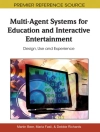Transparency in Global Change examines the quest for information exchange in an increasingly international, open society. Recent transformations in governments and cultures have brought about a surge in the pursuit of knowledge in areas of law, trade, professions, investment, education, and medical practice—among others. Technological advancements in communications, led by the United States, and public access to information fuel the phenomenon of transparency. This rise in transparency parallels a diminution of secrecy—though, as Burkart and Leslie Holzner point out, secrecy continues to exist on many levels. Based on current events and historical references in literature and the social sciences, Transparency in Global Change focuses on the turning points of information cultures, such as scandals, that lead to pressure for transparency. Moreover, the Holzners illuminate byproducts of transparency—debate, insight, and impetus for change, as transparency exposes the moral corruptions of dictatorship, empire, and inequity.
Mengenai Pengarang
Burkart Holzner is professor of sociology and public and international affairs, and Distinguished Service Professor Emeritus of International Studies at the University of Pittsburgh. His earlier work dealt with the sociology of knowledge and includes Reality Construction in Society, and (with John Marx) Knowledge Application: The Knowledge System in Society. He directed the University Center for International Studies for twenty years and became increasingly interested in global change.












